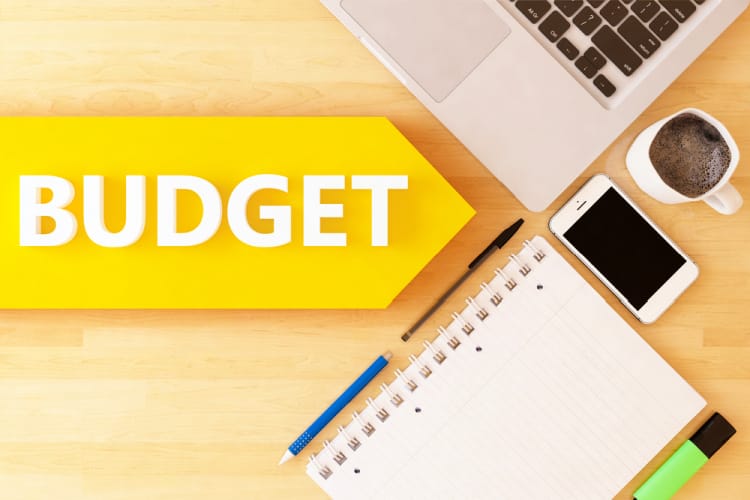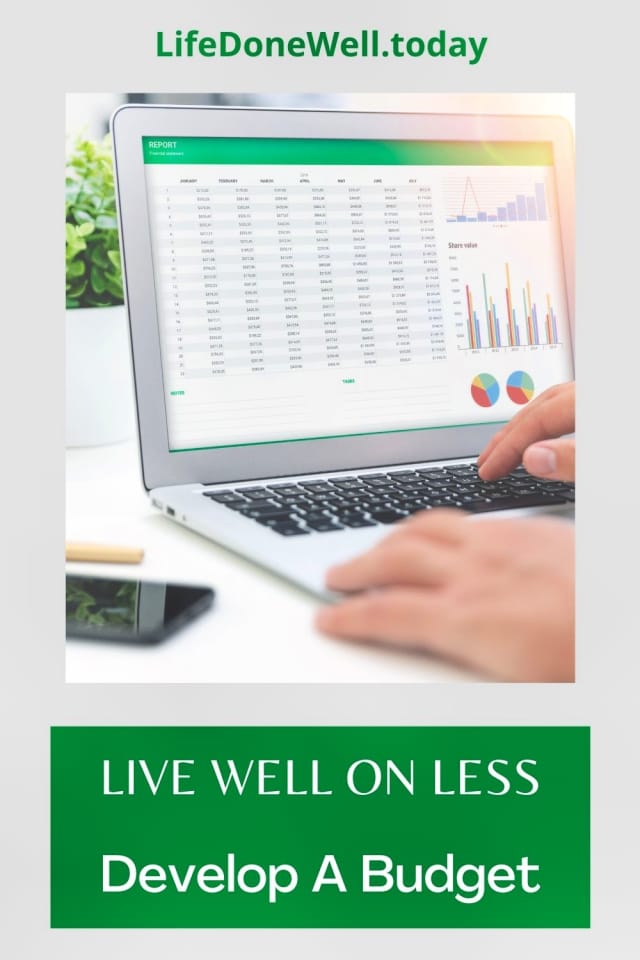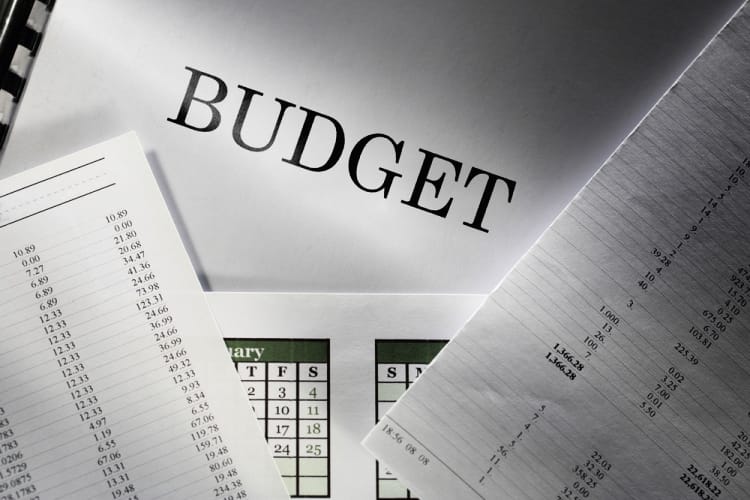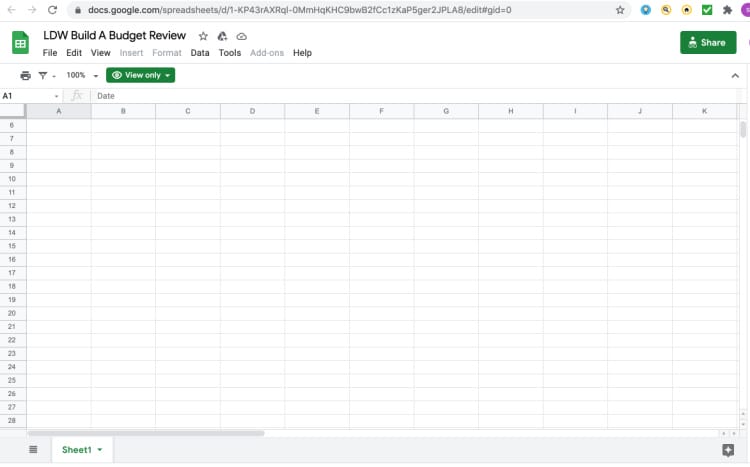
When you’re trying to live well on less, I hate to say it, but developing a budget is a must. There’s just no way around it. You have to know what is coming in and how you are spending it.
We all remember the days of sticking to our budgets. Watching where each dollar went and trying to save wherever we could to pay off debt or save for something special.
When David and I were first starting out, we were in graduate school. We then went to work in DC before David decided to return to school for his PhD. So, we packed up and moved to Rhode Island.
I was working in the non-profit world for $18,000 a year and David was making a few hundred dollars a month as a research assistant. Needless-to-say, money was tight and we had to watch where every penny was spent.
Due to the cost of living where we were and that summer rents more than doubled, we ended up buying a very little house and had a $800 mortgage. So, you can do the math…1/2 of my income went to the house.

Two years in, knowing the issues we would face having children. Doctor after doctor told us we better try sooner than later. Thus, two years into David’s PhD program, with fertility help, we had the twins.
Let me tell you – we had to budget and we did it.
The years went on and we budgeted for so many different reasons and we payed very close attention to our budget. We knew what we spent and where to put the money coming in. The twins college was paid for and all was good.
Then, as we got older, we became more general about a budget. We weren’t irresponsible or anything, just not as detailed as in our younger years. But the one thing that remained the same… we love to save money. We love to find a deal. We love to travel and we love nice things. And yes, all of that can go hand in hand.
In no way does having a budget mean being frugal or cheap. You certainly can still live in luxury for less. Which is the whole point of our Life Done Well on Less posts. It simply means knowing what is coming in and what is going out and where it is going.

It also does not mean foregoing things you want to. It means making sure those things are in your budget and learning how to do them without breaking the bank. Simply put, it is about the responsibility of knowing, period.
You will notice I am leaving income and money-in out of all of this. This is so you do not look at what you have to spend, but what you are actually spending.
Step One in developing a budget.
So, the first step you need to do is take a two month period and record everything you spend, include cash and credit cards. I suggest starting with your bank account and recording each check, cash withdrawal and bank credit card. Then, move on to any other credit cards and other ways you spend money.
Spending money does not include savings, but if you do automatically save money each month spent from one of the sources listed and it is a bank transaction, list it on the sheet. No need to list it if you have it automatically taken out from a paycheck.
Using this sheet and this process may seem overwhelming and nuts, but believe me it is amazing.
This is how I see it.
In business, we make our vendors re-bid each year. We want to see the results and value of what is happening. How do you think all businesses grow, whether it’s a corporation or mom and pop small business?
They have a budget no matter how much money they have. You should, too. So, treat your own money like a business, period. Respect it.
Let’s get to work.
This is how I do it…
I use a google spreadsheet which I’ve included below. The form is a guideline and each budget should and will look different. You will have to add and delete columns to fit your needs. So, for me, you will see farm and garden as well as bees all listed separately.

When you start Step One, you do not want to get down in the weeds with details that will be too overwhelming. This will come in Step Two. For now, just put each amount you spent where you think it should go. Make two copies of this sheet and do for two different months.
You will also see some general columns like Target and TSC (Tractor Supply Company). For now, these general areas are just fine. Also, remember to add any other columns you need. Do not go nuts just get it down. The columns are in no particular order, except how they came up in the months I was checking.
The other thing you cannot do during this process is get mad at yourself for some of the things you spent money on. It is life and you’re taking action now.
Click the link below for the google sheet. You will be a viewer of the sheet and will be able to make a copy or download to your own google files. From there, you can leave in goggle sheets or move to excel or numbers. I personally manage all of my budget and money in the numbers app for apple.
Please remember that this form is for review. We will break down the details later, but this is to get a feel for where your money goes in general. Add and delete columns to personalize it. I know not all of you have bees…
Most importantly just get started and have fun!

I am a home cook that does things my way. In my kitchen, I make breakfast, pack lunches, prepare snacks, and cook dinner. During the week, we eat real food that is homemade, organic, and local. On the weekends we do explore more of our local restaurants. I bake my own bread, juice fresh oranges every other day, and make my own kombucha and other weekly favorites.











